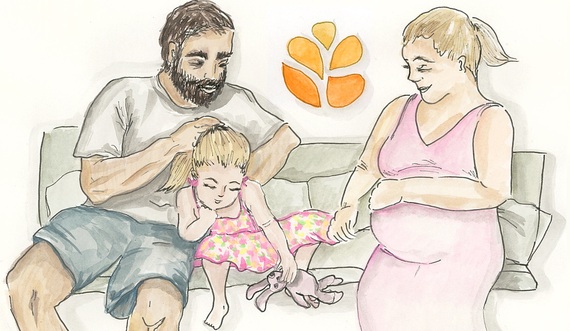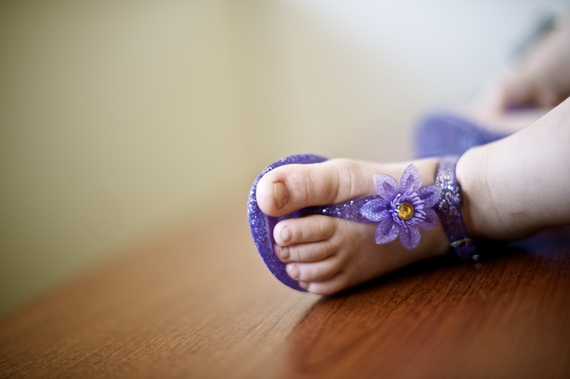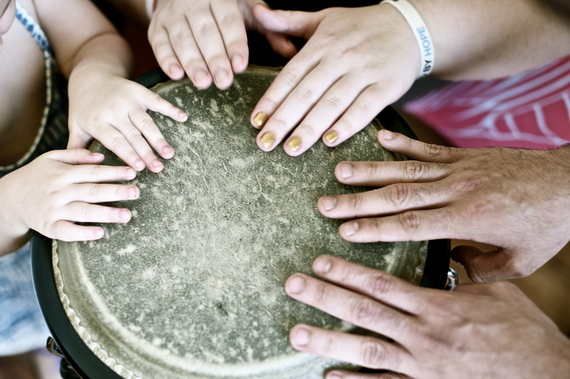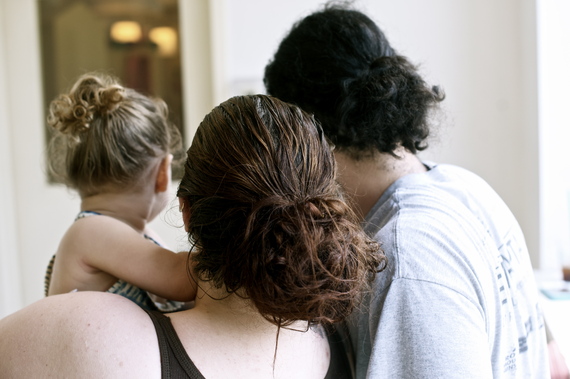An illustration of Safe Horizon’s Streetwork client, and homeless dad, Gio, his daughter Heaven and wife Alyssa. Illustration by Hayden Yund
Gio is 23 years old. He is Puerto Rican. He’s also the father of a 2-year-old little girl. His wife is currently pregnant with their second child. They are homeless.
And he’s aware that others may view his reality, and homeless people, unfavorably. “I think they see us as scumbags. That we aren’t good people. That homeless dads shouldn’t be parents. That we can’t support our children.”
Last summer, former New York City Mayor Rudy Giuliani fueled the anti-homeless sentiment, advising law enforcement to “chase ‘em out of the city” in reference to homeless people on the street. Additionally, some media outlets continue to refer to homeless people disparagingly as “bums.” When messages like these are so prevalent, you can begin to see why a young homeless man like Gio thinks society is against him.
Gio is a regular at Safe Horizon’s Streetwork Project, a drop-in program for homeless youth. Director Francis Aponte-Veras reflects on his experience, “So many people think that if you’re homeless that you can’t be a good father. He’s really struggled in life at times and didn’t have it easy. But he is an amazing father. I think it’s important for people to understand how hard he tries. His baby is a happy baby. She loves him.”
Heaven loves her purple sandals and the “click-clack “sounds they make when she walks. Photo by Michael Polenberg
Gio was just 14-years-old when his life was turned upside down. While living in Puerto Rico, his grandmother became seriously ill and was no longer able to care for him. As a result, she sent him to New York City to live with his birth mother. The city lights, crowds and fast pace were a stark contrast to the small and tropical community Gio was used to in his native town of Mayagüez, Puerto Rico.
Two years later, Gio was in foster care. His mother was abusing drugs and he was taken from her.
Statistically, young people are at greater risk of becoming homeless if their parents struggle with substance abuse or have mental health problems. As a result of becoming homeless, Gio moved around from Staten Island, to Manhattan, to the Bronx. He was forced into adulthood at a young age. "Becoming homeless was life-changing. I went from having a home to not having anything and having to find benefits and resources on my own as a kid. It was hard. I had no one to guide me and a couple of times I got denied. It was frustrating. I wanted to give up,” Gio said.
The homeless system can best be described as a tangled web, within a tangled web, within a tangled web. It can be extremely difficult to navigate. This is why drop-in centers are so vital. They try to untangle that web as much as possible, acting as a one-stop shop to give young people a pathway to self-sufficiency.
At Safe Horizon's Streetwork Project, for example, not only do young people have access to clean clothes, a hot meal, showers and a place to rest, but there is a housing coordinator on site to try and link young people to housing. There are also support groups, counselors and even a psychiatrist for those dealing with mental illness.
For those young people who are parents, the Streetwork staff do their best to provide the tools needed to meet their children’s needs—whether that means helping them to obtain necessary baby items like diapers, a stroller or clothes that they otherwise might not be able to afford, or holding support groups for parents.
Some might say that starting a family when you’re homeless is irresponsible. But the truth is that young consenting adults are going to have sex. This is not something anyone can police or control. The role of an advocate or case worker is to help that young person make an informed decision by thinking through the pros and cons of having a child. This means asking questions that will really get young people to critically think about what becoming a parent entails: “What do you imagine will happen once you have a baby? Who is your support system? How will you buy formula and clothes?” Once there is a child in the situation, the focus shifts to supporting the parent in being the best parent they can possibly be and most importantly, ensuring the well-being of that child.
When I met Gio and his family, 2-year-old Heaven was drawn to drums and her parents would encourage her to play. Photo by Michael Polenberg
When Heaven was born, Gio's wife Alyssa said that the father-daughter bond was instant, "When they put her on my chest, she was extremely fussy. But as soon as they put her with Gio, she was so calm."
Even though the young family calls city shelter home, they are actively looking for an apartment. The search for an apartment in a safe neighborhood can be a long and arduous process for many homeless people. Not only are rents very expensive and vacancies extremely limited, but criteria like "good credit" can serve as a daunting barrier for homeless people who have often spent years with little or no income. While there are short-term rental subsidies in New York City for homeless people, it has been well-documented that many landlords refuse to accept these vouchers.
Despite these struggles, Gio is cherishing conversations with his 2-year-old baby girl which usually go something like “Yes. No. Give Me. Mine.” And what parent of a young child can’t relate to that?
More than anything, he wants to provide Heaven with anything she needs. “I never want her to feel that daddy or mommy can’t get it.”
To all the fathers who have ever had to cope with trauma and its effects, we salute you on this father’s day. We recognize your struggle and are here to support you as you continue on your journey from crisis to confidence.
Gio and his family wanted to remain anonymous, but allowed us to snap this photo of them. Photo by Michael Polenberg



